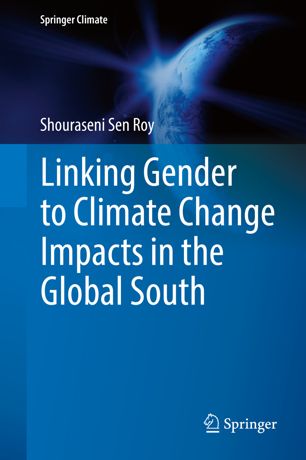

Most ebook files are in PDF format, so you can easily read them using various software such as Foxit Reader or directly on the Google Chrome browser.
Some ebook files are released by publishers in other formats such as .awz, .mobi, .epub, .fb2, etc. You may need to install specific software to read these formats on mobile/PC, such as Calibre.
Please read the tutorial at this link: https://ebookbell.com/faq
We offer FREE conversion to the popular formats you request; however, this may take some time. Therefore, right after payment, please email us, and we will try to provide the service as quickly as possible.
For some exceptional file formats or broken links (if any), please refrain from opening any disputes. Instead, email us first, and we will try to assist within a maximum of 6 hours.
EbookBell Team

5.0
40 reviewsThis authored book assesses the spatial patterns of climate change and gender inequalities across the Global South, and analyzes the disproportionate impacts that climate change processes have on women in these regions. Though many books attempt to incorporate gender issues into climate change, this book examines the issue as a whole by addressing the relationship between climate change and gender from a number of perspectives. The book incorporates case studies from various regions of the Global South, a designation broadly defined as the countries of Africa, Middle and South America, and most of Asia including the Middle East. In the book's two main sections, readers will learn about how climate change affects access to regional opportunities and resources, the obstacles created by climate change that affect women more strongly than men, and how affected female populations adapt to changing conditions and protect their local livelihoods.
Section one, covering chapters 1 and 2, addresses the spatial patterns of climate change and gender inequalities/inequities across the Global South by analyzing long-term trends from the latest reports of the Intergovernmental Panel on Climate Change (IPCC) and the World Economic forum. Section two, covering chapters 3 through 7, discusses the critical issues related to climate change and gender inequality, and presents literature reviews and case studies in the Global South. The different issues and perspectives discussed include health, water and food security, education, conflicts, migration, participation in decision-making processes, and changing urban social landscapes. The concluding chapter discusses policy initiatives and makes recommendations to some of the gender mainstreaming through empowerment and participation. This interdisciplinary book will appeal to academics and policy-makers beyond just the fields of environmental sciences and gender studies, and may be adopted as a resource for graduate students and researchers.